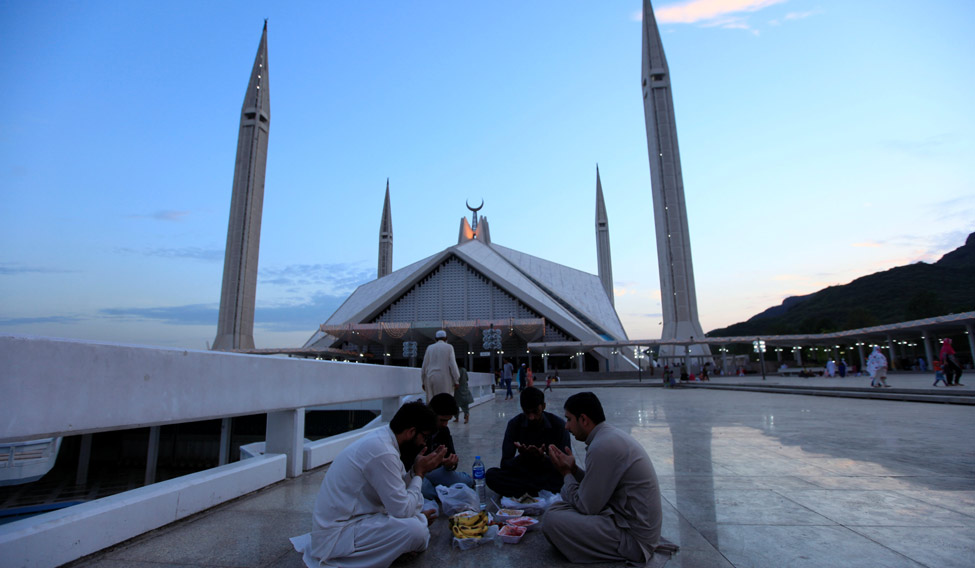With the month of Ramadan almost over, a frequently asked question is: Will this month be of 29 days or 30? The burden of finally answering this question in Pakistan falls on the Ruet-e-Hilal Committee (the official authority of Pakistan that declares the starting of an Islamic month).
The sighting (or not sighting ) of Ramadan and Eid moon has been conflicted in Pakistan at least for as long as I can remember—waiting for the news of whether or not the next day is the first of Ramadan, or Eid. Every year, there is a good chance of the country celebrating two Eids on two different days; same goes for the announcement of the starting of Ramadan. The Khyber Pakhtunkhwa province (previously known as North-Western Frontier Province) would more often than not, announce the starting of the month of Ramadan and celebration of Eid with Saudi Arabia, regardless of the possibility of birth and sighting of moon in their geographical location. Usually the rest of the country celebrates either of the events a day later.
Let me elaborate the procedure for all those who do not know how the system of Ramadan and Eid moon works among Muslims. The official announcement of the start of an Islamic month needs sighting of the moon and at least 10 credible witnesses to back the sighting. These rules, however, were derived about 1,400 years ago when we did not have sophisticated meteorology departments and were still counting on people sighting moon with the naked eye.
Without realising the technicalities and rules that the Ruet-e-Hilal Committee have to abide by, most Pakistanis simply blame the issues of sighting of moon on this body. Even the Pakistani media, while talking about the Committee’s work, do not explain to the public that it is not only up to Ruet-e-Hilal to decide whether they fast the next day or not.
After every 29.5 days, the moon comes exactly between the earth and sun, and does not reflect any sunlight. At this point, the moon is not visible from earth. This time is called conjunction, after which is the birth of the new moon. As the moon moves out of the straight line, a new moon crescent appears, and this marks the sighting of the Ramadan or Eid moon. Experts say that the angle between the sun and the moon needs to be at least 10.5 degrees for the naked eye to be able to see it.
There are a few Islamic scholars who are advocating that moon-sighting should not be the criterion for declaration of starting of the new month of Ramadan. However, most of the others are adamant that this should remain the criterion.
During all the debate, we have been ignoring a key factor— science. If the administration puts a small effort in letting science help, the issue of sighting of moon can be resolved easily. Today, the meteorology department helps disaster management departments prepare for upcoming storms, hurricanes, and floods weeks before the disaster hits. Even if we do not want to make the institutions such as Ruet-e-Hilal Committee obsolete by solely relying on the meteorology department, it can help the committee with the exact window of time when and where the moon could be visible at a certain time.
Modern techniques can even help with generating simulated images of the moon beforehand—where in the sky, how high and when to look for the moon. Simulations can also help with determining whether or not there are any chances of the moon to be visible on a certain night.
Again, there is the issue of the testimonies to support the sighting of the moon. Science helps with that problem, too. Simulated images of the moon can help determine if the testimonies are correct or not. The witnesses can be asked to point out the height, time of sighting, angle, and distance from the sun and the angle of the cusps, to determine credibility.
It is not hard to settle the moon sighting issue if we open our Islamic minds a little and make space for science.
Disclaimer: The views expressed in this article are solely those of the author and do not necessarily represent the views of the publication.






